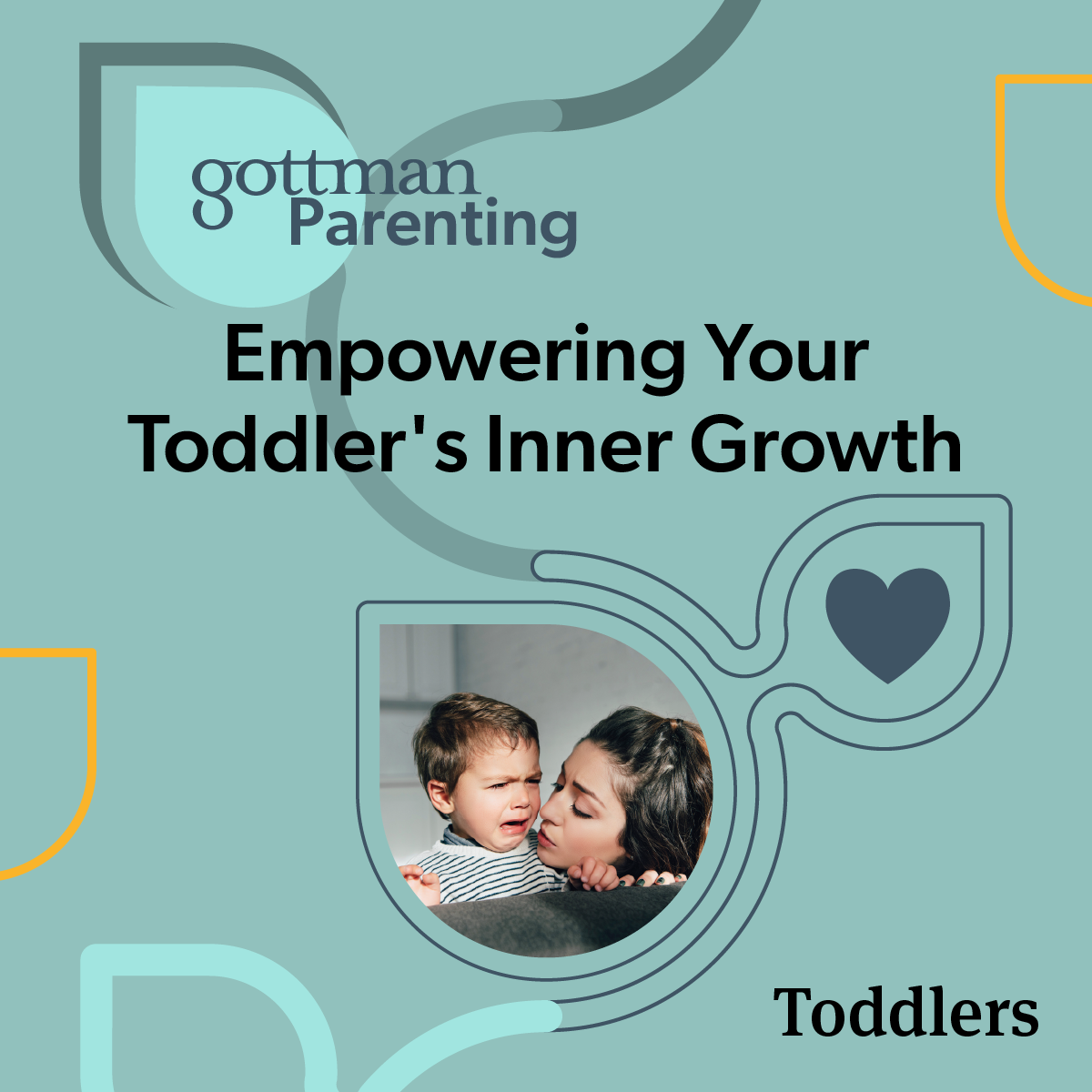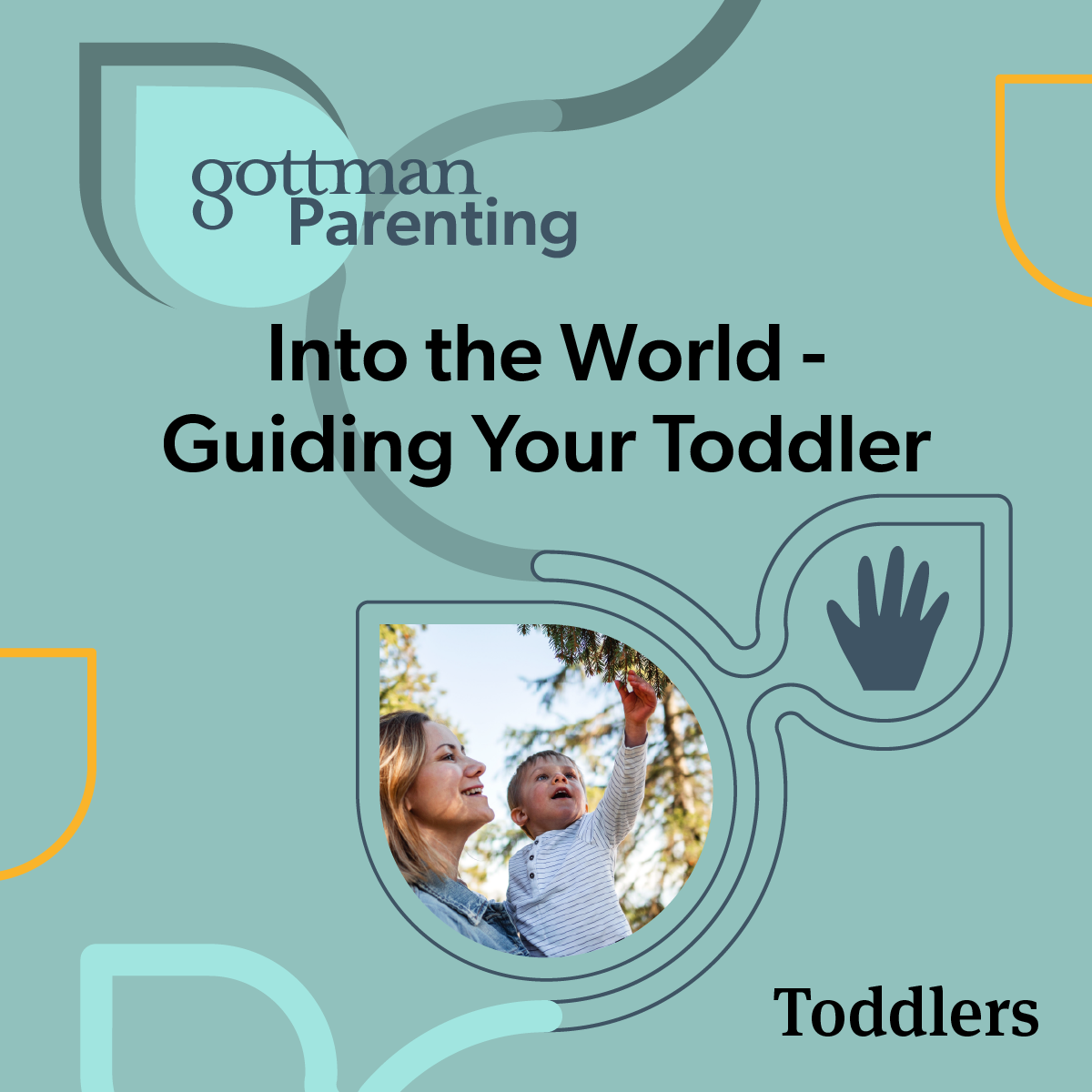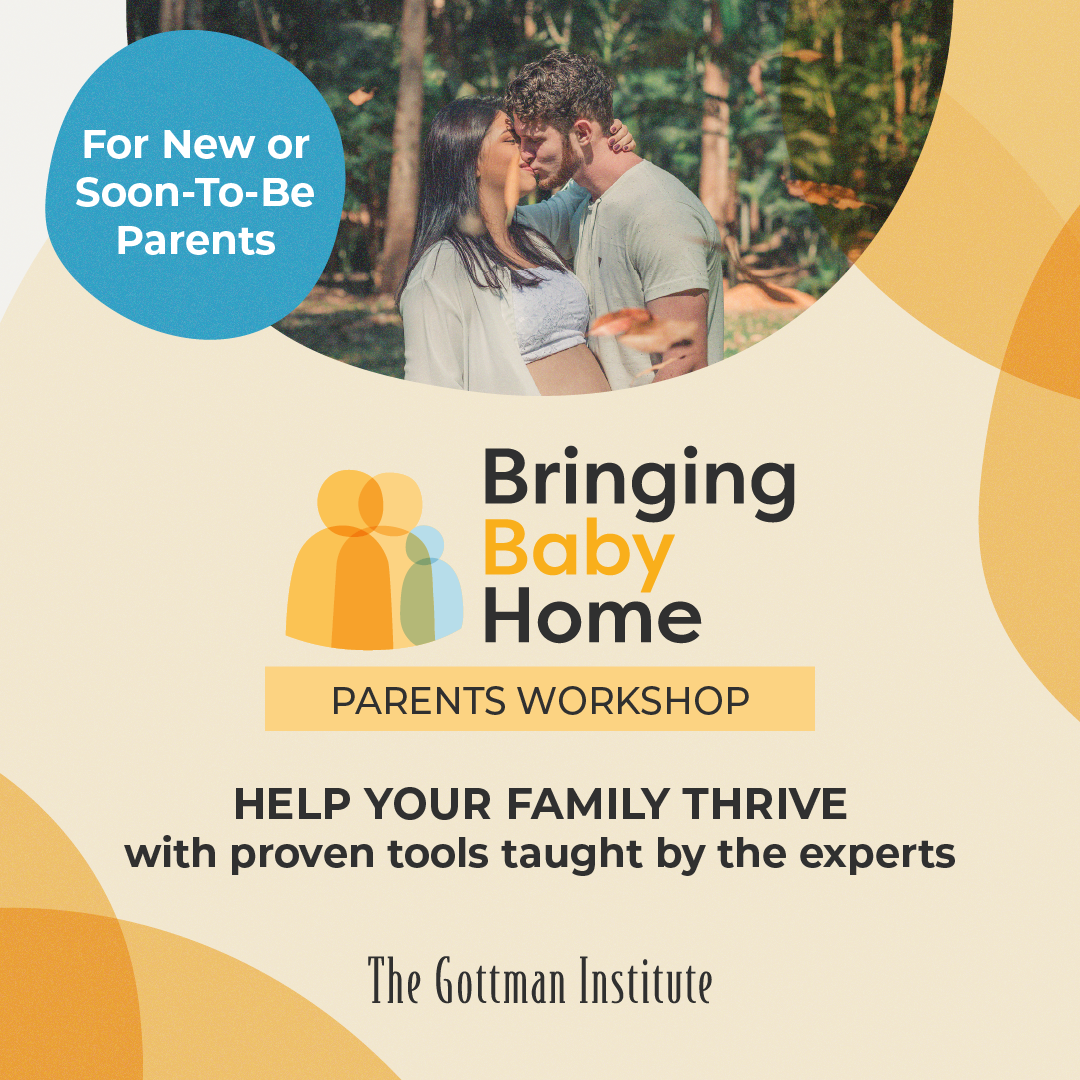“Parenting is the hardest job in the world… and you don’t even know if you’re doing a good job until your kids are adults!”
This is a phrase I hear often from parents (it enters my own mind from time to time). Being a parent is difficult and not knowing whether you’re doing it “right” makes it that much harder. If you search for parenting advice, you will be inundated with information. The amount of parenting advice out there can be overwhelming and downright confusing.
So, is it true? There’s no way to know until they grow up? Well, there may be some truth in that, as the future is always unknown and out of our control to a large degree. However, thanks to decades of research by Dr. John Gottman on both relationships and parenting, we know that there are things a parent can do to create a strong bond with their child and set their child up for success in life.
Secure the Bond
Creating a secure bond with your child sets the stage for them to live a happy, fulfilling life. Securely attached children fare better throughout their life. They display higher self-esteem, are more independent, do better in school, and have strong relationships with others. We also know from research conducted by Dr. John Gottman that children who learn emotional intelligence do better in all areas of life including school, career, mental health, and relationships. So the question becomes, how do you create a secure bond with your child and teach them emotional intelligence?
The answer lies in your ability to be available and responsive to them. Although sometimes this can feel like a daunting task, it doesn’t mean that you need to drop everything else and give them your undivided attention. Being available and responsive to them can occur in the everyday small moments that build up over time. Dr. Gottman refers to this relationship-building technique as “small things often.” Relationships are not built on the big expensive vacations you take your family on or the expensive gifts you buy your kids for their birthday. Families build relationships brick by brick slowly over time in the small, consistent everyday moments. They show your child you are there for them.
Practice Small Things Often
So what does “Small Things Often” look like in your relationship with your child? Here is a breakdown of some of the ways you can be responsive and available to your child in small, consistent ways.
Build and engage in small rituals of connection around transition points in the day. These are great opportunities to have a moment of connection. This could be as simple as a “Good morning, honey” when they wake up or “Have a great day” when dropped off at school. It can include a hug, a kiss, or another form of a physical connection. Bedtime could include a longer ritual such as a story, lullaby, or small chat before they drift off to sleep. The ritual needs to be something that fits both of you. Your rituals will change as your child gets older but continuing to make transition times a point of connection lets your child know you are there for them.
Express positivity to your child. Most of what children hear from parents and caregivers involves what to do and what not to do. Many parents are quick to point out the things their child hasn’t done or has done wrong but are less inclined to share the positive. However, expressing the positive is crucial. In fact, positive expressions need to outweigh the negative expressions for your child to feel loved, accepted, and valued. Positive expressions include things such as thanking them for helping out (even if it is a chore), giving them a compliment, or telling how proud you are of them.
Show your child affection. The level of affection in your relationship with your child may change over time (most teenagers do not want affection from their parents, especially in public), but affection is important no matter the age. Make sure you are hugging your child, giving them kisses, or even just a pat on the back. Affection lets your child know you care about them and you are there for them.
Turn toward your child. When your child makes a bid for connection, do your best to respond to them in a positive manner. This can be a daunting task when your child wants constant attention and you are busy. However, keep in mind that you don’t have to provide them with what they want to be responsive. You can simply say, “Honey, I hear you and I want to play with you too. I need to finish the laundry and then we can have playtime together.” The most common place I see failed bids between parent and child is when the parent is on their phone or another screen. If you are scrolling through social media or checking emails, it can easily take your attention away and you can miss bids. Be cognizant of when you are on your phone and try to limit the screen time to a minimum when you are around your kids so that you can be available.
Be curious about their world. Ask your child questions about their day and get to know who they are. Specific questions are much better than general questions. For example, “What was the most fun part of your day?” will elicit a more detailed response than “How was your day?” Dinnertime is great to connect with your children and ask about their world. Make sure that you are paying attention and remembering what they say.
Spend time together. It doesn’t have to be a lot of time. Spending even 10 minutes a day engaging in an activity with your child that they enjoy sends a powerful message that you care about them and love them. If you make this special time a part of your routine, it will be more likely to occur.
Repair negative interactions between the two of you. Great parenting does not require perfection (thank goodness!). However, it does require that you repair when you mess up. We all have bad days, miss bids, or react badly toward our child over something small. We are human. However, the repair is key. When you can repair a negative interaction with your child, it tells them that you will always be there, even during difficult times. Additionally, it teaches them valuable skills about how to repair relationships and take responsibility. This will help them in future relationships when they inevitably have conflicts with others.
Final Thought
Parenting is hard, but by engaging in small moments of connection with your child often, you can build a bond that will set them up for success for a lifetime.
Want research-backed tips on parenting delivered straight to your inbox?
The Gottman Parenting newsletter is a comprehensive, inclusive resource for parents of children in all ages and stages. Join us as we tackle modern parenting challenges, explore the latest parenting research, and more.










